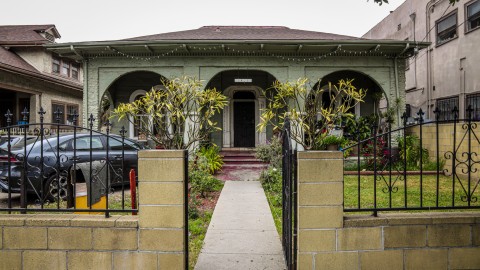A New Monastic community in a time of social distancing
The idea of this place is incarnation. When someone here gets sick, so does everyone else.

It’s 5 p.m. on the first Monday after we realized this thing was a pandemic. I’m in a house in Los Angeles with 11 people. This morning the president recommended not gathering in groups of more than ten.
The compound the Emmaus House shares with the next door Nehemiah House is best described as a New Monastic community—think monastery, but replace cloisters with two ramshackle houses and a basketball hoop, and replace the order of brothers with a motley cast of families and 20-somethings who host neighborhood dinners and after-school programs and prayer nights all week. The doors swing on busy hinges. The grocery store has no eggs. Disneyland is closed. The Emmaus House is open.
Eight people live in the Emmaus House permanently; two foster children joined a month ago and will be here as long as anyone can predict. In the Nehemiah House, three men live in the basement, three women in the back room and Marta and her two grown children in the front.





